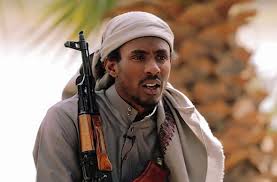June 29 marked the first anniversary of the Islamic state. It is an indictment of the international community that an entity so monstrous should move into its second year without showing any significant signs of recession. Instead, its recruitment drive is increasingly sophisticated and successful, the envy of other terror groups. While the ISIS prompts many conspiracy theories, it has not yet sufficiently unsettled Arabs to launch an assault on it as decisive as in the case of impoverished Yemen, for instance. No joint Arab force was mooted to battle the Islamic state. Differences between Saudi Arabia and Iran take precedence over joint efforts against it.
Whatever air power has been used has been done sporadically, more as revenge, and sometimes to deflect attention away from internal deficiencies. This is how Jordan, the UAE, Qatar, Morocco have launched attacks. Western military initiatives led by the US have also been limited and also resented in the region. More resources have been poured into Syrian rebels battling the Assad government, which looks almost angelic compared to the IS. Shiite militias, Kurdish peshmerga, the weak Iraqi army are fighting the ISIS in what are more localised knee-jerk reactions.
Arab commentators and analysts continue to see Assad and Iran as bigger threats.
Read More








